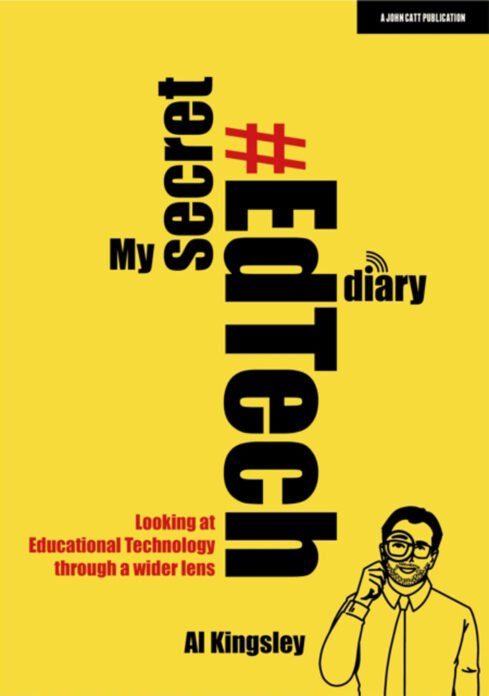Should you be in the fortunate position of either being head of a new school, or the head of digital technology with a blank sheet of paper and a decent-sized budget, this “Diary” will prove to be a godsend.
For example, we are told that long-term planning is essential, especially in the realm of infrastructure and hardware. What happens in three to five years’ time when the equipment is either worn out, no longer fit for purpose or both should be a primary consideration.
We are also warned of the futility of implementing apparently wonderful new technology – Google Glass is cited – and then trying to find the educational benefits of having done so.
And, to take another example, we are cautioned about the disadvantages of implementing e-safety software that looks for certain keywords and blocks the websites that use them without regard to context.
All good advice, but nothing that wasn’t said 30 years ago. Indeed, much of the advice is excellent, although it is a sad confirmation that the trope that education lacks any sort of collective memory is in fact well observed.
There are several welcome aspects of the book. Firstly, having had to respond in no time at all to the challenges of online education, we now have a wealth of experience to draw on in terms of what worked well and what didn’t. The author does so very well, pulling in experiences from the UK and elsewhere.
Secondly, the checklists and “Top Tips” throughout make it easy for the reader to take in quite complex ideas and information almost at a glance.
Thirdly, it’s useful to learn how edtech suppliers decide on what to bring to the market, and how they go about doing so.
However…
Advice on how schools should plan their edtech spending may strike some as being a little late
There is an old joke – you will have heard it – in which a driver stops to ask someone the way to a particular place. “Well,” answers the pedestrian, “I wouldn’t start from here.” And while this book offers good advice about what can be achieved with educational technology, the importance of having a strategy and so on, one has the sense that it has come 18 months too late. Except, of course, without the pandemic the interest in a book such as this would have been decidedly narrower, and the book itself thinner.
This is the implicit paradox at the heart of this book. Based on the author’s extensive experience both as an edtech supplier and an educationalist, as well as what has been found to work well in using educational technology for providing teaching during lockdowns, the “Diary” has much to commend it.
However, advice along the lines of how schools should plan their spending on edtech may strike some as being a little late. It might have been useful to have at least included a section or a whole chapter about how to identify and then reverse decisions that, in retrospect, were unwise. To some extent this is implied in the list of questions that planners should ask, but a more explicit treatment would have been welcome.
Which raises the question: who is this book for? This is where the waters become a little muddy. Although it seems clear that the intended readership is anyone charged with a school’s digital learning strategy, the author also says the book is aimed at budding “edupreneurs”. This dreadful neologism seems to refer both to someone who wishes to implement a particular (edtech-related) idea in their classroom, and companies looking to bring a new idea to market.
As a pulling back of the curtain so that teachers can see the process new edtech products (should) go through this is interesting and, perhaps, even useful. But as a guide for “budding edupreneurs” it seems out of place here.
A few structural omissions are frustrating. There are no chapter summaries, no index and no comprehensive list of all the websites mentioned.
However, as a compact and accessible guide to good practice in the implementation of education technology in schools, supported by research from the wider field of education, EdTech Diary is a good investment.
This review was first published in SchoolsWeek.

